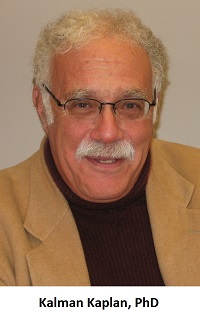In a poem written by the great Italian writer, Dante Aligheiri, a person is described at midlife as finding himself in “a dark wood wandering.” In other words, the compass with which we plan our lives from childhood on, cracks, and we find ourselves lost, without a map. In a very real sense, this is where life really begins, and where people have a chance to become fully human. Over my years as a professor of psychology and psychotherapist, I became increasingly dissatisfied with the inability of both academic and clinical psychology to reach this issue, and the real turmoil so many people experience in their lives. Modern psychotherapy and counseling seemed to have departed from its basic thrust to address people’s most basic problems and confusions in life, and indeed offers band-aids that really do not provide a meaning structure that people can live with.
The reconstruction of meaning became my basic thrust in treating people. What is their life –story? Were their aims and dreams when they were children, and what has happened along the way to change that? And how do people regroup? How do they rebuild their lives.
And I came to understand the dynamics of individuation and attachment in this process. How can one be oneself with others and how does this change over the Eriksonian stages spanning the trajectory of life. And in the process I began to see that a psychology based on biblical narratives could be more effective in this regard than the more traditional narratives implicitly based on ancient Greek narratives. And so I have become a biblical psychotherapist.
Click below to schedule an appointment with Dr. Kaplan
Kalman J. Kaplan, Ph.D. is Professor of Clinical Psychology and Director of the Center for Religion, Spirituality and Mental Health in the Department of Psychiatry and the Department of Medical Education at the University of Illinois at Chicago College of Medicine and Adjunct Professor of Psychology and Judaism at Spertus Institute of Jewish Studies. He is also a licensed clinical psychologist in Illinois and Michigan.
Dr. Kaplan has retired as Professor of Psychology at Wayne State University and has held visiting positions at a number of universities, including The University of California, Davis, Harvard University, Boston University, Northwestern University Medical School and Tel Aviv University. He has been Editor of the Journal of Psychology and Judaism and on the Editorial Board of Omega. Dr. Kaplan has published widely in the area of interpersonal and international relations, the emerging field of Biblical Psychology, schizophrenia and suicide/suicide prevention. Dr. Kaplan is a Fellow in the American Psychological Association, was the co-recipient of the 1998 Alexander Gralnick Award for outstanding original research in suicide and schizophrenia, and was a 2006-2007 and 2011-2012 Fulbright Fellow at Tel Aviv University. Dr. Kaplan has published sixteen books, many book chapters and close to 100 published articles. He has also given over 150 presentations, both nationally and internationally.
In 2007-2010 Dr. Kaplan was awarded a start-up grant from The John Templeton Foundation to develop an online program in Religion, Spirituality and Mental Health at the University of Illinois College of Medicine (www. rsmh.org) Over the last 7 years, his program in Biblical Psychology has enrolled over 200 students from all over the world, including almost 80% opinion leaders. He argues that modern psychology and psychiatry have been implicitly based on classical Greek rather than Biblical narratives and thinking, and suggests that a Biblical psychology would produce a more positive hopeful perspective. Dr. Kaplan has also been a recipient of a Senior Associate Fulbright Fellowship and has developed n Hebrew-subtitled version of this at Tel Aviv University. He is also a member of the ongoing Faith Communities Task Force of the National Action Alliance for Suicide Prevention.
Among Dr. Kaplan’s books are Living with Schizophrenia (1997), TILT: Teaching Individuals to Live Together (1998), Right to Die versus Sacredness of Life (2000 , Biblical Stories for Psychotherapy and Counseling: A Sourcebook (2004), The Seven Habits of the Good Life: How the Biblical Virtues Free Us from the Seven Deadly Sins(2006), The Fruit of Her Hands: A Psychology of Biblical Woman (2007), A Psychology of Hope: A Biblical Response to Tragedy and Suicide. (2008) Living Biblically: Ten Guides for Fulfillment and Happiness (2012) In the Beginning: Biblical Sparks for a Child’s Week (2013) and Politics in the Hebrew Bible: God, Man and Government (2013). He is also the author of a recently published play Oedipus in Jerusalem (2015) and is coauthor of a new book in press entitled Biblical Psychotherapy: Reclaiming Scriptural Narratives for Positive Psychology and Suicide Prevention.


